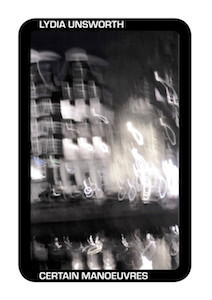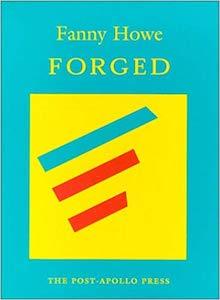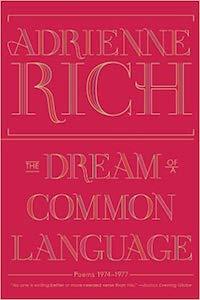I complain about the New York Times marginalizing poetry in their books coverage (e.g., they mention only 1-2 poetry books in their 100 Notable Books of the year feature), but I realized I sort of do that myself. I don’t recommend poetry books much to friends (unless they ask) and I don’t keep up with the constant flood of new books as well as I do with fiction and non-fiction. But probably for different reasons than the New York Times doesn’t recommend or keep up.
There’s the fact that bookstores generally don’t keep a stock of contemporary poetry – you usually have to make a conscious effort to order and buy new volumes (and there are so many I’m behind on ordering, I’m genuinely sorry, poets!) I also find writing about poetry incredibly difficult, because of the demands I make on it. And there is, too, I must confess, the sad desire to limit my exposure because people feel so free and happy to disparage poetry and poets (and I’ve faced this down for years). It’s like we’re members of some marginalized religion, and I only want to talk to the initiated about it, not put my appreciation on display on the internet.
Anyhow, that’s not to say there isn’t a lot of poetry in my life. Sometimes it’s the only thing that will do and I dig through piles of poetry books trying to find something I can’t define until I’ve found it. There were lots of poems in my sphere in 2018, but not systematically cover-to-cover via books. However, in the interest of giving poets and poetry some of their due, here are a few poetry books that got me through 2018, linked directly for purchase!
Certain Manoeuvres by Lydia Unsworth (Knives Forks Spoons Press, 2018)

This prose poem collection is by my now-friend, but let it be known that I swooned at Lydia’s writing before I met her. Playful, at times acidic, philosophical, linked prose poetry pieces. Questions of what it means to travel, to migrate, to be in a self in body, to be a stranger, to be a city-dweller… Just some really good sentences and paragraphs, too.
Forged by Fanny Howe (The Post Apollo Press, 1999)

I have lots of books by Fanny Howe, and I’m often drawn back to this little one, I think partly because it’s little, it feels good to hold. Fanny Howe’s work contains that paradoxical mystery-plus-fulfillment I need from poetry. Faith that this is still possible with language. A short line will suddenly shine out with clarity and meaning where it didn’t before. They’re like prayers, incantantions, or that language-based thought before it slips off into the ether.
The Dream of a Common Language by Adrienne Rich (W.W. Norton, 1978)

Adrienne Rich is the poet we need in this time, right now. Her poems are the opposite of provincial, they’re global in scope; poems that wrestle with gender, with power dynamics, with being a woman in history and in the world; poems that don’t let anyone off easily. And she’s been here this whole time, you dummies! In this collection, I kept coming back to “Hunger” and “Paula Becker to Clara Westoff.” I’m angry that the Harold Bloom-influenced literary snobbery kept me away from her for so long. (In his stint as the editor of the “Best of the Best American Poetry, 1988-1997,”, he refused to include anything from the 1996 volume selected by Rich, because of her political engagement.) Fuck off, Harold Bloom.
